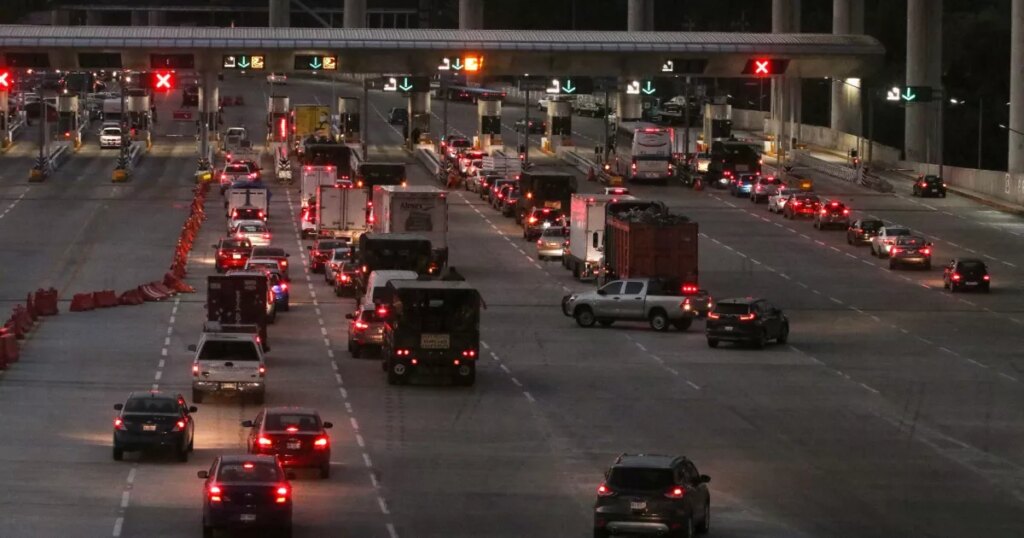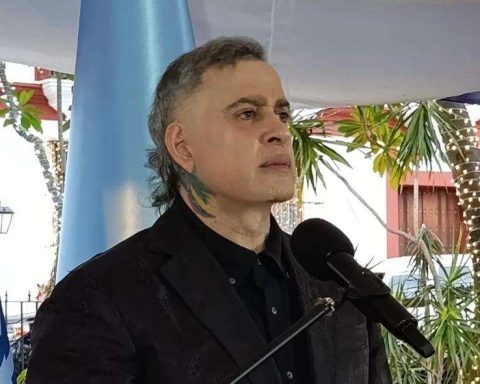The social revolt of April 2018 was the turning point that led to the breakdown of the “marriage” between the Nicaraguan private company and the dictatorship of Daniel Ortega and Rosario Murillo. The Higher Council for Private Enterprise (Cosep) and the regime agreed to apply a corporatist model in the country that worked in their favor for 11 years.
That “agreement” with the regime allowed them to nominate businessmen for public office, the creation of laws in their favor, exoneration and exemption from taxes, among many other benefits that they took advantage of for more than a decade.
This model that they baptized “dialogue and consensus” ended after the start of the protests. Cosep decided to break its “alliance” with the dictatorship and adopt a position in keeping with the new reality the country was experiencing.
Related news: “Ortega could create his own association of banks” before Asobanp’s “headless”
Demonstrations throughout the country were for the approval of a social security reform, which imposed a tax on pensions, an increase in the labor quota, and a higher quota for employers, represented by businessmen. Cosep closed ranks and opposed the reform of the Nicaraguan Social Security Institute (INSS). The 2018 reform was repealed by Ortega in the aftermath of the protests and was later approved again.
Jail business leaders
The consequences against the business sector have been disastrous: Ortega ordered the imprisonment of his main union leaders: José Adán Aguerri, Michael Healy Lacayo and Álvaro Vargas; former president, president and vice president of the organization respectively.
Added to this wave of arrests was the capture of banker Luis Rivas Anduray, executive president of Grupo Promérica and Banco de la Producción (Banpro). Rivas, Aguerri, Healy and Vargas were indicted for alleged crimes of treason. The banker was also accused of illegally carrying or possessing a firearm, among other crimes.
Related news: Ortega annihilates the Association of Private Banks in Nicaragua
Rivas was arrested on June 15, 2021, after appearing before the Ortega Prosecutor’s Office to be “interviewed”, thus becoming the first banker against whom the Ortega administration ordered jail, under the argument of being a “traitor to the homeland”.
Aguerri was arrested on June 8, 2021 and sentenced to 13 years in prison. Healy and Vargas were arrested on October 21, 2021. The Ortega courts sentenced them to 13 and nine years in prison, respectively.
The alleged “pressure” of the US on businessmen
Daniel Ortega accused the United States Government on January 31 of having pressured Nicaraguan businessmen to rise up against him during the popular revolt that broke out in April 2018 and left hundreds dead.
“Here (in Nicaragua) everything was going well (…), but the (US) empire was always there conspiring, the imperialists of the land conspiring, and threatening the businessmen, who had made that great alliance with us,” the dictator said. .
According to Ortega, Washington threatened Nicaraguan businessmen “that they were going to apply sanctions to bankrupt them and all the businesses they did from the United States, that they were going to lose all the money (money) they had in the banks.” .
Related news: José Adán Aguirre is in prison “for challenging Ortega’s monster,” says the Grex
“And that led them, the businessmen, to surrender and join the plan of violence, terror, death, burning of transport units, kidnapping of transport units, torture, murder and burning of young people and adults, of women, of police, “he added.
The closure of Asobanp
Ortega attacked big capital by ordering the cancellation of the legal personality of the Association of Private Banks of Nicaragua (Asobanp). The Ministry of the Interior erased the records and perpetual number of the organization according to Ministerial Agreement No. 05-2023 OSFL published in the Official Gazette La Gaceta No. 20 this Friday, February 3, 2023. Economists warned that said action could be a “passing of accounts” for opposing the tax reforms in 2019.
Asobanp declared in February 2019 its “deep concern” about the reform of the Tax Agreement Law and some modifications to social security. Another aspect that economists pointed out is that with the outlawing of Asobanp, the Nicaraguan dictatorship “intends to create a kind of association of banks related to the government».
“The proposed tax and social security reforms will have a negative effect on the national economy, impacting the less favored population, increasing unemployment, promoting the informal economy and discouraging national and foreign investment,” Asobanp said at the time.
Related news: Ortega accuses the US of pressuring businessmen to rise up against him
The bank considered “determinant that any proposed reform must be subject to a comprehensive solution to the sociopolitical crisis that the country is going through, in order to restore confidence in all economic sectors.”
Said reform raised the Income Tax, the Selective Consumption Tax, as well as income from economic activity, capital and profits, given the socio-political crisis that the country has been experiencing since April 2018. Asobanp was founded in 1993, 30 years ago .
The protests left at least 355 dead according to the Inter-American Commission on Human Rights (IACHR). Ortega only recognized 200, but he recently said there were more than 300 and maintains that it was an attempted coup.

















